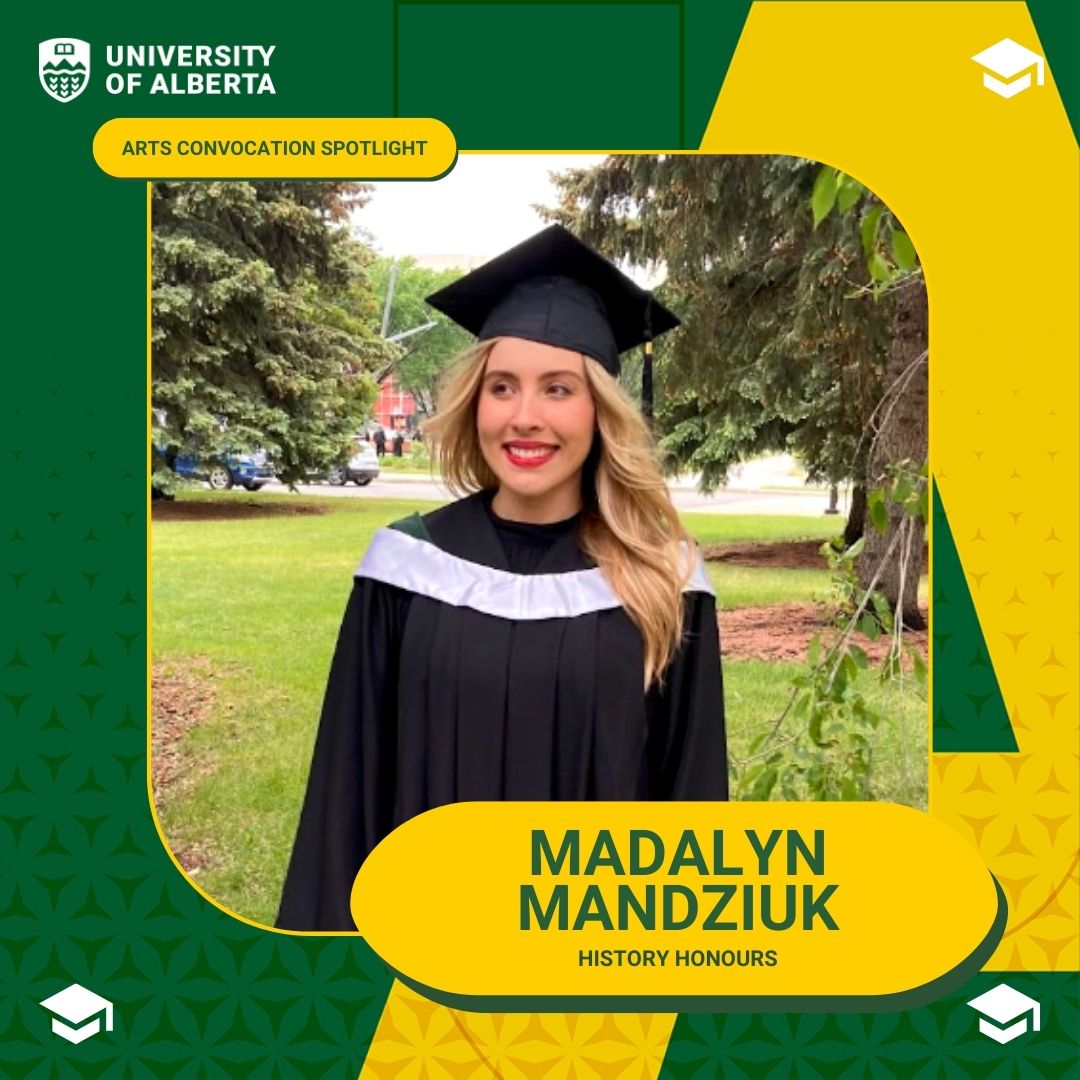Finding connections between the past and the present
Lauren Bannon - 20 June 2022

“My educational journey has been a busy one,” says Madalyn Mandziuk, convocating BA Honors student and LOVE Scholar. Between studying history and an anthropology minor, and time spent in community service and fieldwork, it’s safe to say that statement rings true.
“Although it was challenging at times to work shift work and balance volunteering with my studies, I found that it enriched all aspects of my undergraduate education.”
When Mandziuk first arrived at the University of Alberta after high school, she was unsure what she wanted to pursue; but a course in archaeology during her second semester sparked the trajectory of her undergraduate career.
“Field school opened my eyes to the importance of archaeology for Indigenous communities and sparked my interest in history and heritage policy. I was also inspired by community volunteer work with Indigenous children and youth and individuals with developmental disabilities that I had been a part of.”
“Directly supporting vulnerable people and communities and hearing their stories inspired me to learn more about the connection between the past and issues facing those in the present.”
Though Mandziuk has a wide range of experiences in her curriculum vitae, one significant experience that stands out is working with the Institute of Prairie and Indigenous Archaeology.
She was first introduced to the institute during field school in 2019, where she began working alongside the institute’s director Dr. Kisha Supernant and her team. Using geophysical methods such as ground-penetrating radar (an instrument designed to detect changes in the subsurface through the emission of high-frequency radar pulses) and magnetometry (tools that measure the effects buried materials have upon the earth's geomagnetic field), the institute helped the Papaschase First Nation locate a burial site in South Edmonton, Alberta.
This experience ignited a long-term connection to the institute.
“I was in awe of the work Dr. Supernant did with Indigenous communities to locate their ancestors and her work at residential school sites,” she says. “This work is incredibly important, and I wanted to help more.”
With Dr. Supernant's support, Mandziuk continued working with the institute while fulfilling the academic requirements and service hours necessary for a Certificate in Community Engagement and Service-Learning. But this time was different, as she began contributing skills learned through her history degree by supporting archival research necessary to complete projects partnering with Indigenous communities to locate missing children and unmarked graves at residential school sites.
“This work involves supporting communities in accessing archives and archival documents related to residential schools, and developing ways to analyze and use archival data to assist in locating unmarked graves,” she says. “I am grateful to have the opportunity to apply what I learned during my history degree to helping with contemporary issues.”
This summer, Mandziuk will continue to support Dr. Supernant’s work as a research assistant for the institute. In the fall, she will begin another academic journey with the Faculty of Law, beginning the Juris Doctor program.
“My undergraduate studies and work have shown me how past injustices continue to shape and form present systems of oppression,” she said. “I look forward to studying in a program that will support me in further exploring my passion for social justice.”
The gift of fearlessness
When reflecting on what drove her undergraduate success, Mandziuk says that in addition to chasing her passions, learning to simply let go of fear greatly gratified her experience.
“The second I let go of being afraid of outcomes and started talking to professors – getting advice and mentorship – and seeking out new opportunities, everything changed immeasurably. I was able to have an enriching undergraduate experience that has prepared me for the workforce and for further studies while having the opportunity to do community-led work.”